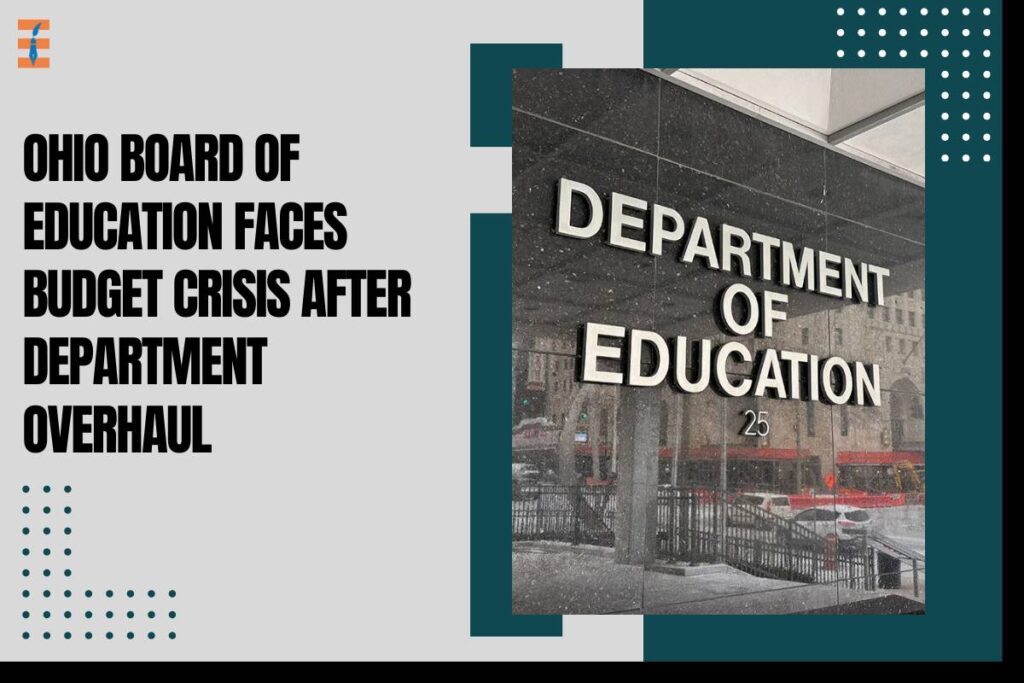Source- NBC4
Columbus, Ohio – The Ohio Board of Education finds itself grappling with a budget crisis following a recent overhaul of the education department by the legislature. The changes, enacted in October, shifted oversight of the state’s education department from the Board of Education to the governor, leading to financial uncertainties for the board.
In a recent meeting held in March, members of the Board of Education voiced concerns over a projected deficit of $4 to $5 million in the coming years. To address this shortfall, the board has proposed increasing its five-year teacher licensing fees from $200 to $325. Additionally, they are considering significant staff reductions, possibly cutting a third to half of its current staff. The board also plans to seek additional funding from the General Revenue Fund to cover responsibilities that now fall outside its redefined role as a licensing agency.
A spokesperson for the governor’s office acknowledged the anticipated downsizing of the board’s staff post-overhaul but deemed it premature for the board to make such proposals. However, Ohio Education Association President Scott DiMauro has urged the governor and legislature to bridge the funding gaps without resorting to staff cuts or fee hikes.
DiMauro emphasized the unfair burden that higher licensing fees would place on teachers, as they would ultimately foot the bill for decisions made by politicians. He expressed concern that staffing cuts could prolong processes such as investigations into teacher misconduct, potentially impacting student welfare.
The Board of Education has already taken steps to reduce expenses by curbing travel expenditures and leaving some positions vacant.
The budget crisis underscores the challenges faced by Ohio’s education system in the wake of structural changes. As discussions continue between stakeholders, the priority remains ensuring adequate funding to uphold the quality of education for Ohio’s students while balancing fiscal responsibilities.
Education Budget Crisis: Calls for Collaborative Solutions
Amidst the uncertainty, the Ohio Board of Education remains committed to fulfilling its obligations to the state’s education system. However, the looming budget deficit poses a significant obstacle to the board’s ability to effectively carry out its duties.
Critics argue that the budget shortfall reflects a broader issue of underfunding in Ohio’s education sector. They stress the importance of prioritizing adequate funding for education to support student success and maintain the integrity of the state’s educational standards.
In response to these concerns, stakeholders are calling for a collaborative approach to address the budget crisis. Advocates emphasize the need for constructive dialogue between the Board of Education, the governor’s office, and the legislature to identify viable solutions that safeguard the interests of students, teachers, and the broader education community.
Building a Sustainable Future: Prioritizing Education in Ohio
As discussions unfold, all parties involved are urged to consider the long-term implications of their decisions on Ohio’s education system. Finding sustainable funding solutions that prioritize student well-being and support the professional development of educators is essential to ensuring a thriving educational environment for generations to come.
Ultimately, the resolution of the Ohio Board of Education budget crisis will require a concerted effort from policymakers, educators, and community members alike. By working together collaboratively and prioritizing the needs of students, Ohio can overcome its current challenges and build a stronger, more resilient education system for the future.
Also Read: The Final Ohio Education Budget Increases Vouchers While Reducing Board Of Education Power










